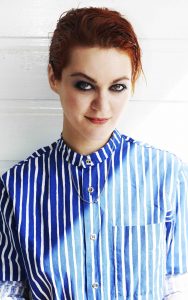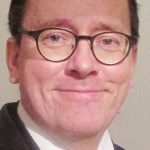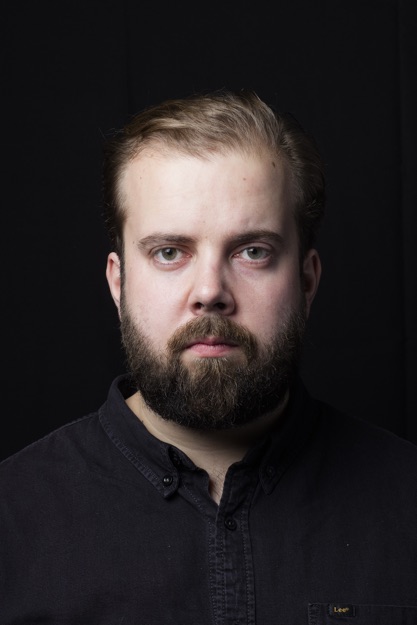Welcome to Media Lab DA seminar Thu 8.12. from 17–19.
Location: Miestentie 3 (Otaniemi), 4th floor, room 429.
Presentation and debate by Jelena Rosic:
ENACTIVE STORYTELLING
A neurophenomenological approach to narrative interaction
“Enactive Storytelling is a research on intersubjective sharing of experiences in interactive digital media conducted within Aalto’s research groups Crucible Studio and NeuroCine.
In my research, I study narrative as a mode of interaction, understood as embodied and situated enaction with the world and others. Enaction refers to the enabling of meaning-making through participation and intersubjectively shared experience.
In order to create an integrative conceptual and practical model of interactive narrative, I adapt embodied mind approach from enactive cognitive sciences and introduce multilevel perspective of neurophenomenology to the study of narrative practice. With the neurophenomenological program, the study of consciousness that integrates experimental methods of neuroscience with phenomenological methods, I discuss the neural basis of narratives and their correlation with experiential phenomena. Combining both research-based and practice-based methods, I further follow neurophenomenological “2nd person” methods that seek to offer multi-level description between the phenomenological data (1st person), collected in a 2nd person interview, that can be correlated with 3rd person data (behavioral response, neuroimaging, electroencephalography…)
This much needed dialog between 1st and 3rd person perspectives and methods on social, emphatic and intersubjective understanding and sharing, provides me a kind of 2nd person perspective to enact also from a point of view of my own artistic practice – film editing – into a conceptual framework. In particular, this proposed framework cuts across a range of issues in the interactive narrative technologies and questions concerned with computable narrative models, user interaction and experience, as well as authoring of interactive systems.
In my talk, I will also discuss most recent insights from the Predictive Processing workshop (Neuroaesthetics and Neurocultures, University of Amsterdam) and from my participation in the interactive storytelling industry events – Immersive Network Summit and IDFA DocLab Academy.”
SHORT BIO: JELENA ROSIC
 Jelena Rosic (MA) graduated from the Netherlands Film Academy (Artistic Research in Film) and from the Faculty of Dramatic Arts, Belgrade (Film Editing). During her previous studies, she has been researching the topics concerned with film as mediated form of intersubjectivity and has been affiliated with NeuroCine, Aalto (Rosic J. & Tikka P. 2013. Annotation of film content for a neurocinematic analysis: Implications for embodied approaches to filmmaking) and Neuroaesthetics of Film, University of Amsterdam. Her recent editing work, a feature film Humidity, premiered at the Berlin International Film Festival (Berlinale 2016).
Jelena Rosic (MA) graduated from the Netherlands Film Academy (Artistic Research in Film) and from the Faculty of Dramatic Arts, Belgrade (Film Editing). During her previous studies, she has been researching the topics concerned with film as mediated form of intersubjectivity and has been affiliated with NeuroCine, Aalto (Rosic J. & Tikka P. 2013. Annotation of film content for a neurocinematic analysis: Implications for embodied approaches to filmmaking) and Neuroaesthetics of Film, University of Amsterdam. Her recent editing work, a feature film Humidity, premiered at the Berlin International Film Festival (Berlinale 2016).
Followed by presentation by our guest Timo Honkela, University of Helsinki:
THE BIG PICTURE OF HUMAN-MACHINE COEVOLUTION
ABSTRACT
Invention of linguistic communication, symbolic representation, writing and printing have been important steps in human cultural evolution. Computers and networks have have enabled further developments. During the past fifty years human knowledge and skills have progressed increasingly with the help of computers. The knowledge and skills of digital systems have been usually limited by the knowledge and imagination of humans. There are exceptions to this and they are increasing because of the use of machine learning, evolutionary algorithms and other adaptive systems, growing amount of open data, and computational resources becoming close to human capacities. Clear risks related to these developments. For instance, large proportion of professions will be taken over by computers and robots. This is, however, a limited problem if the development leads into improved understanding of our societies and decision making, improved mutual understanding, and better use of resources. This kind of cultural evolution can lead into very beneficial developments. We can discuss what kind of design-in-the-large is needed to reach such a positive track.
SHORT BIO: TIMO HONKELA
 It may be fair to say that professor Timo Honkela has unusually wide scientific and work experience. He has served as a professor earlier in the University of Art and Design Helsinki, Media Lab and Helsinki University of Technology, Laboratory of Information and Computer Science and currently at the University of Helsinki, Department of Modern Languages. Honkela’s research and development work has covered since 1980s areas such as natural language processing, artificial neural networks, participatory media art, visual information retrieval, text mining, socio-cognitive modeling, and analysis of complex societal phenomena.
It may be fair to say that professor Timo Honkela has unusually wide scientific and work experience. He has served as a professor earlier in the University of Art and Design Helsinki, Media Lab and Helsinki University of Technology, Laboratory of Information and Computer Science and currently at the University of Helsinki, Department of Modern Languages. Honkela’s research and development work has covered since 1980s areas such as natural language processing, artificial neural networks, participatory media art, visual information retrieval, text mining, socio-cognitive modeling, and analysis of complex societal phenomena.
Guest lecture at Media Lab DA seminar: Timo Honkela
We will end the session with a small Pikkujoulu gathering with christmassy refreshments and an open discussions.
Welcome!


 Jelena Rosic (MA) graduated from the Netherlands Film Academy (Artistic Research in Film) and from the Faculty of Dramatic Arts, Belgrade (Film Editing). During her previous studies, she has been researching the topics concerned with film as mediated form of intersubjectivity and has been affiliated with NeuroCine, Aalto (Rosic J. & Tikka P. 2013. Annotation of film content for a neurocinematic analysis: Implications for embodied approaches to filmmaking) and Neuroaesthetics of Film, University of Amsterdam. Her recent editing work, a feature film Humidity, premiered at the Berlin International Film Festival (Berlinale 2016).
Jelena Rosic (MA) graduated from the Netherlands Film Academy (Artistic Research in Film) and from the Faculty of Dramatic Arts, Belgrade (Film Editing). During her previous studies, she has been researching the topics concerned with film as mediated form of intersubjectivity and has been affiliated with NeuroCine, Aalto (Rosic J. & Tikka P. 2013. Annotation of film content for a neurocinematic analysis: Implications for embodied approaches to filmmaking) and Neuroaesthetics of Film, University of Amsterdam. Her recent editing work, a feature film Humidity, premiered at the Berlin International Film Festival (Berlinale 2016). It may be fair to say that professor Timo Honkela has unusually wide scientific and work experience. He has served as a professor earlier in the University of Art and Design Helsinki, Media Lab and Helsinki University of Technology, Laboratory of Information and Computer Science and currently at the University of Helsinki, Department of Modern Languages. Honkela’s research and development work has covered since 1980s areas such as natural language processing, artificial neural networks, participatory media art, visual information retrieval, text mining, socio-cognitive modeling, and analysis of complex societal phenomena.
It may be fair to say that professor Timo Honkela has unusually wide scientific and work experience. He has served as a professor earlier in the University of Art and Design Helsinki, Media Lab and Helsinki University of Technology, Laboratory of Information and Computer Science and currently at the University of Helsinki, Department of Modern Languages. Honkela’s research and development work has covered since 1980s areas such as natural language processing, artificial neural networks, participatory media art, visual information retrieval, text mining, socio-cognitive modeling, and analysis of complex societal phenomena.